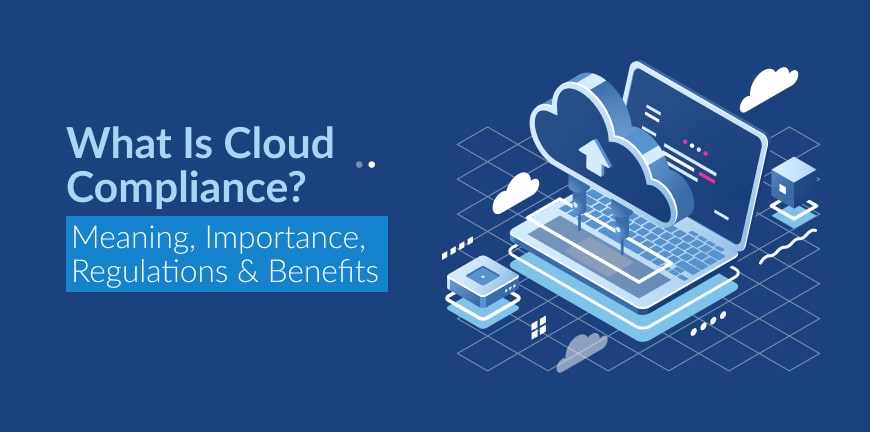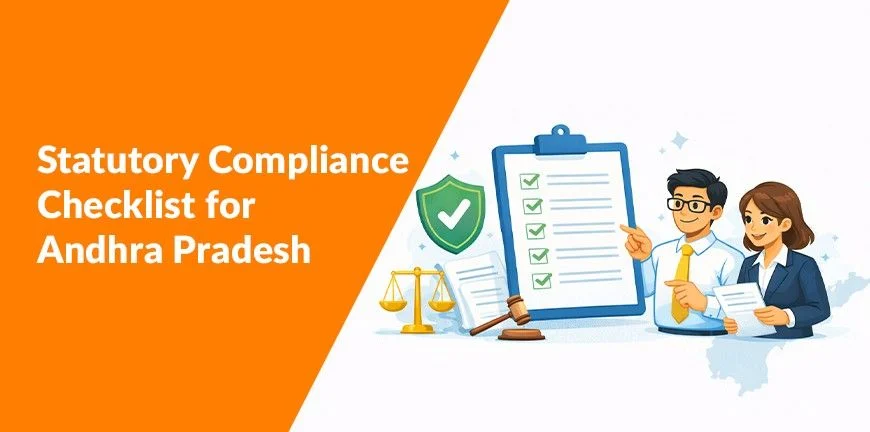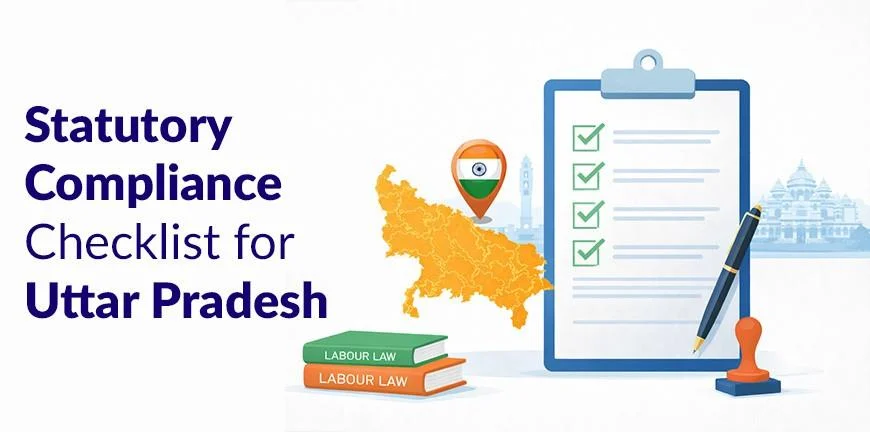
The Power Shift: Job Seeker Centric Approach Takes the Lead
27/05/2025
What is Selection Process: 7 Steps & Best Practices to Hire Top Talent
27/05/2025- What Is Cloud Compliance? (Meaning & Definition)
- Why Cloud Compliance Matters?
- What are the Key Cloud Compliance Standards and Regulations?
- What are the Core Components of Cloud Compliance?
- What are the Challenges of Cloud Compliance?
- What are the Benefits of Cloud Compliance?
- Are you Looking Cloud Compliance Partner?
- Frequently Asked Questions (FAQs)
Digital transformation is the current mantra of success for every business and cloud computing is the messenger that stores and manages every bit of data needed for running all operations from onboarding employees to sending invoices after the final delivery of a product. However, cloud computing services are regulated by certain regulations and laws which companies must adhere to avoid legal repercussions.
Let’s dissect and understand cloud compliance meaning, importance, key standards and regulations, challenges, and benefits in-depth to improve our chances of achieving 100% cloud compliance and gaining a competitive edge.
What Is Cloud Compliance? (Meaning & Definition)
Cloud compliance meaning states that ” Any company or enterprise using cloud computing for managing operations and data must align their internal practices and procedures related to cloud infrastructure with regulations specified by the state and central governments of India”.
The regulations prescribed for monitoring and mitigating cloud compliance issues may be industry specific like HIPAA (Health Insurance Portability and Accountability Act) and Payment Card Industry Data Security Standard (PCI-DSS), or universally applicable cloud compliance acts like GDPR (General Data Protection Regulation).
The major objective described in the cloud compliance definition is to protect sensitive data related to employees, business operations, etc., maintain privacy and ensure business continuity.
Meeting cloud compliance requirements is not merely satisfying legal mandates but a sustained effort to create a safe cloud environment that protects employee and company’s data, increases trust among the stakeholders, and enhances the brand reputation to create more business opportunities.
Why Cloud Compliance Matters?
The aspects that make the cloud compliance matrix (cybersecurity control framework for cloud computing) essential for running business operations without disruptions include:
1. Cloud compliance ensures sensitive data is safe
Following the cloud compliance checklist diligently will ensure employee and business data are securely stored in the cloud environment, preventing unauthorised access and data breaches.
2. Maintaining stakeholder trust
Proving cloud compliance helps companies maintain stakeholder trust as they are reassured that their data is in safe hands.
3. Preventing penalties and lawsuits
If any company that utilises cloud technology for managing operations is unable to mitigate cloud compliance issues can lead to serious repercussions like heavy penalties and lawsuits from authorities.
4. Increased brand reputation
Cloud compliance demonstrates the company’s efforts towards data protection enhancing the brand reputations and gives a competitive edge for generating future investment.
What are the Key Cloud Compliance Standards and Regulations?
Here are the key cloud compliance standards that companies must align their cloud operations to stay compliant:
| Regulation under cloud compliance requirements | Description |
| PCI-DSS | It is a global cloud compliance security standard that regulates companies that deal with handling and storing sensitive credit and debit card information. |
| ISO 27001 | This is a regulatory framework that mandates all companies and establishments to strongly enforce and continuously improve security protocols and practices to ensure sensitive data related to employees and operations are protected at all times. |
| SOX | This act requires organizations using cloud platforms for financial data to implement strict controls like encryption, access management, audit trails, and backups to maintain the accuracy and integrity of financial information. |
| NIST | This standard offers structured cybersecurity guidelines to help organizations manage risks in cloud environments. Supports secure data handling through identification, protection, detection, response, and recovery controls. |
| GDPR | This requires cloud users and providers to implement robust data protection measures such as encryption, access control, and deletion rights for safeguarding personal information and ensuring user privacy. |
| CCPA | This standard enforces privacy rights over personal data stored in the cloud, requiring transparent practices, user access control, data deletion capabilities, and opt-out options for personal data sharing. |
| HIPAA | This regulation enforces cloud systems managing health-related data and patient details to develop secure physical, network, and administrative safety protocols, along with agreements ensuring sensitive health information are protected without any breach. |
| FedRAMP | This regulation provides a standardized framework for assessing, authorizing, and monitoring cloud services, ensuring they meet high-level security requirements for trusted data management and operational assurance. |
What are the Core Components of Cloud Compliance?
The components of the cloud compliance checklist that ensure a company’s internal practices and policies adhere to legal and industrial standards applicable to cloud computing include:
1. Set Roles and Responsibilities for Cloud Service Provider and the Company
In most cases the cloud service provider who takes care of providing cloud infrastructure will take responsibility for ensuring security and compliance of physical components like databases, servers, and networks.
On the other hand, the company must take responsibility for the security and compliance of the data entered and saved in the databases like employee information, payroll details, bank transactions, business operations data, etc., and user access controls.
The company and cloud service providers must clearly understand their obligations and fulfil the cloud compliance requirements to prevent violations and ensure 100% compliance.
2. Create a structured framework to manage internal cloud operations
Companies must create an internal cloud governance framework that includes:
- Risk management to identify and mitigate risks associated with cloud operations.
- Create policies and procedures to regulate and control the cloud environment.
- Change management to ensure modifications to the cloud environment don’t disrupt business operations and create cloud compliance issues at any stage.
3. Build a concrete compliance strategy
Companies must create a comprehensive compliance strategy for effective cloud compliance monitoring. The cloud compliance checklist must outline:
- Goals and objectives of cloud compliance.
- Identify relevant cloud compliance standards and regulations applicable to your business.
- Create an internal cloud compliance team or partner with a top cloud compliance partner like ALP Consulting for better outcomes.
- A plan to measure and monitor compliance performance and fix violations on priority.
4. Implement Cloud compliance tools and controls
Achieving cloud compliance requires the integration of different tools and controls. These cloud compliance tools help to automate most cloud management tasks, identify violations and discrepancies in real time, and report generation. Some of the tools that help track and manage cloud compliance checklist include SIEM (Security Information and Event Management), data protection tools, and compliance management software.
On the other hand, cloud compliance controls are mechanisms that regulate and control the activities within the cloud environment. The cloud security compliance tools that help in cloud compliance monitoring and control are both technical and administrative. They typically involve firewalls, encryption, user access controls and audit trails.
5. Periodic Auditing and Reporting
Conducting periodic audits and generating reports is a critical component of the cloud compliance checklist. Auditing helps ensure that the cloud practices are adhering to the regulations and identifies cloud compliance issues that can be fixed on priority.
On the other hand, reporting helps to document all the findings and the current status of cloud compliance. These reports help the stakeholders to make informed decisions to make improvements and achieve better compliance outcomes. Moreover, this is an ongoing process and cloud compliance measures must be updated periodically as per regulatory changes to always ensure compliance.
What are the Challenges of Cloud Compliance?
Cloud compliance meaning says “adhere to all relevant regulations no matter what,” but it’s easier said than done. The cloud compliance challenges that can create hurdles in achieving best outcomes include:
1. Lack of data visibility
When a company adopts a cloud environment for managing operations, a significant challenge is creating unified data visibility across environments. The challenge can also extend to human users as keeping track of who can access it, frequency, and location of access.
2. High Chances of Breaches
Even with the best cloud security compliance tools, the chances of breaches are still high since human involvement is inevitable. As cloud compliance is an ongoing process, users must adhere to all the policies and procedures without fail to prevent data breaches, but in reality, some users may not adhere to them creating vulnerabilities in the cloud environment and increasing the risks of data breaches.
3. Getting Cloud service providers on the same page
Maximum companies whether startups or market leaders rely on third-party cloud service providers of their choice to manage cloud operations as managing in-house may be more tedious and expensive. Additionally, the cloud service provider or CSPs who offer technical cloud support must obtain mandatory certifications to prove that they are compliant with the legal standards. The companies that partner with such CSPs must ensure the legitimacy of the certifications before onboarding them otherwise it can lead to serious consequences during external audits.
What are the Benefits of Cloud Compliance?
The key benefits of meeting cloud compliance requirements include:
1. Enhanced Data Security and Privacy
A diligent execution of the cloud compliance checklist from goal setting to proving compliance will help business entities safeguard sensitive data related to employees and business operations from hacking, unauthorised access, or leakage. A strong commitment to cloud compliance will improve trust among stakeholders and increase brand value in the business world.
2. Ensure Legal and Regulatory Compliance
Cloud compliance will ensure company’s internal cloud practices and policies align with the regulatory requirements preventing legal hassles and penalties. It also demonstrates a company’s unwaivered commitment to ethical data management practices.
3. Enhanced Efficiency and Streamlined Operations
The cloud compliance tools, and control mechanisms will help companies in streamlining their cloud operations and achieve more efficiency preventing data breaches and unauthorised access.
4. Cost and time savings
A robust cloud compliance process will ensure redundant activities are eliminated thereby saving resources and time. Automation will eliminate the need to add more human resources allowing companies to relocate it to improve other core activities leading to better productivity and profits.
Are you Looking Cloud Compliance Partner?
Creating robust cloud compliance management system and control mechanisms with an in-house team that is multitasking can be extremely challenging since it requires specialised expertise and acumen to decipher both the technical and compliance aspects of cloud computing.
This is especially daunting for newly setup and medium scale companies. Therefore, partnering with a top cloud compliance agency like ALP Consulting can be a winning move since they have decades of expertise and experience in offering end-to-end cloud compliance services for all types of industries and establishments. The USPs of ALP Consulting as your cloud compliance partner include:
- Expert guidance and support across India
- Highly skilled cloud compliance team
- Technical and Administrative expertise in achieving 100% cloud compliance.
- End-to-end cloud compliance services
- Tailored Cloud Compliance solutions based on business needs.
Frequently Asked Questions (FAQs)
1. What is cloud compliance?
Cloud compliance meaning states that ” Any organisation big or small must ensure they meet the legal and regulatory requirements for deploying and managing cloud computing services.
2. Why is cloud compliance important?
Cloud compliance is vital for every organisation whether private, public, or an LLP that utilises a cloud environment to manage their business operations and store sensitive employee data. It helps companies mitigate potential risks such as data breaches and unauthorised access. Additionally, cloud compliance ensures internal policies and procedures align with regulatory requirements on a daily basis prevent legal hassles and penalties.
3. Who is responsible for cloud compliance?
Cloud compliance is a shared responsibility between the company that uses cloud infrastructure and the agency that provides cloud computing services.
4. How do I create a cloud compliance checklist?
The key steps to creating an effective cloud compliance checklist include identifying and setting goals according to the relevant regulations and laws that regulate cloud complaints, setting roles and responsibilities and ensure it is followed diligently, creating a structured framework to manage internal cloud operations, developing a sound cloud compliance strategy, deploy cloud compliance tools and control mechanisms, periodic auditing and reporting.
5. What happens if a company is not cloud compliant?
Any company that fails to address cloud compliance issues can face serious consequences like lawsuits, hefty fines, license cancellation, and in extreme cases closure of business.
6. What tools are used for cloud compliance monitoring?
Some of the top cloud compliance monitoring tools preferred by most companies include Prisma Cloud, Microsoft Azure Security Centre, AWS Security Hub, Lacework, etc.
Contact Us For Business Enquiry

Hariharan Iyer
Hariharan Iyer is the Vice President – Operations at ALP Consulting, bringing over 40+ years of experience in HR outsourcing and labour law compliance. He leads end-to-end HRO operations, ensuring process efficiency, statutory compliance, and seamless service delivery for clients across industries. With a strong background in labour law governance and workforce management, Hariharan plays a key role in driving operational excellence and compliance-led HR solutions at ALP Consulting.




